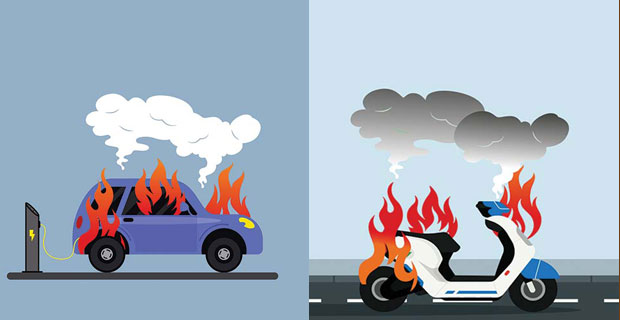Indian EV players hail new standards
Electric vehicle (EV) players in June welcomed the Bureau of Indian Standards’ (BIS) move to issue new performance standards for lithium-ion batteries to safeguard the consumers amid the rising EV fire episodes in the country

EV charging network provider Statiq CEO Akshit Bansal told IANS that the recent spate of fire incidents related to EVs are making consumers conscious and they should be. “I believe that EV batteries need a little more research before they go to market. EV manufacturing companies are in the process of building trust among users but such incidents have really brought the issue to everyone’s notice and this battery issue needs to be sorted out urgently,” he said.
“This BIS move is welcome and improving battery standards is the demand of the times,” Bansal added. The BIS standards came as the government ordered a probe into Tata Motors’ Nexon EV fire incident in Mumbai. The Defence Research and Development Organisation (DRDO), which was earlier tasked with investigating electric two-wheeler fire incidents by the Union Road Transport and Highways Ministry, would lead the probe into Nexon EV fire. The DRDO probe earlier found serious defects in the electric two-wheeler batteries. These defects occurred because the electric two-wheeler manufacturers like Okinawa Autotech, Pure EV, Jitendra Electric Vehicles, Ola Electric, and Boom Motors may have used “lower-grade materials to cut costs”.
The new BIS standards for EV batteries will look into “size, connectors, specification and minimum quality of cells, the battery’s capacity”. “Further, keeping a view on the safety aspect of batteries for EV, Bureau of Indian Standard is in the process of publishing two more standards related to batteries for various passenger and goods carrying vehicles (L, M and N category),” it said. Earlier, NITI Aayog in a discussion paper also stressed upon the need for BIS standards as the first step towards the national battery swapping policy. The Consumer Affairs Ministry said that safety and performance are two critical aspects of electronic devices. “The requirement of battery systems for use as a power source for propulsion of vehicles are significantly different from the battery used for consumer electronics or stationary use,” the ministry added.











Comments.